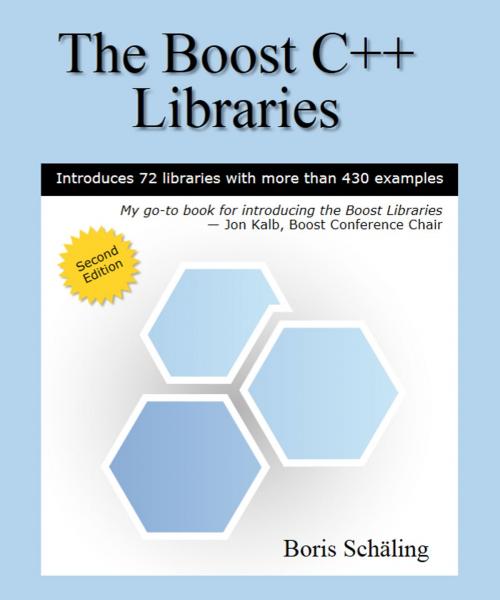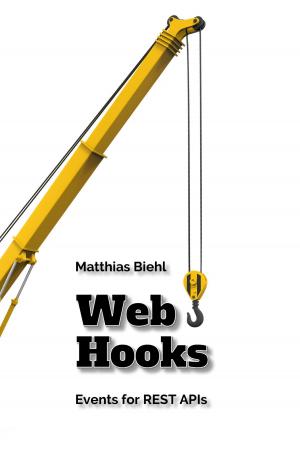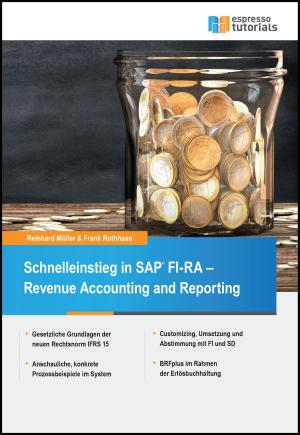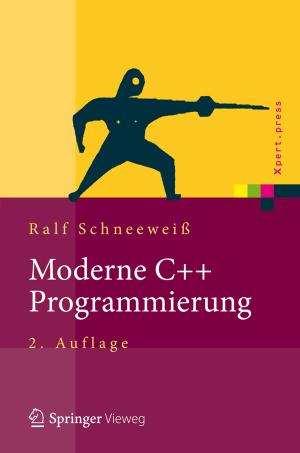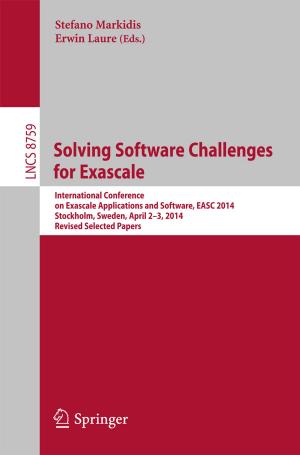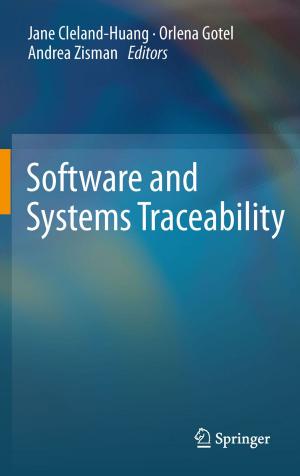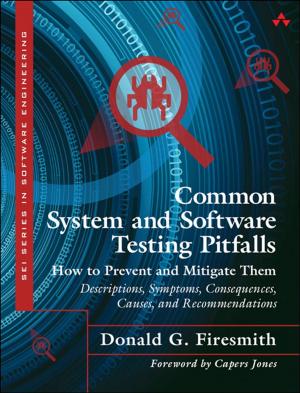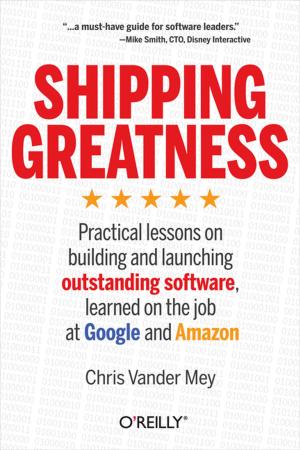The Boost C++ Libraries
Nonfiction, Computers, Programming, C & C++, C++, Programming Languages, Software Development| Author: | Boris Schäling | ISBN: | 1230000276653 |
| Publisher: | Boris Schäling | Publication: | October 26, 2014 |
| Imprint: | Language: | English |
| Author: | Boris Schäling |
| ISBN: | 1230000276653 |
| Publisher: | Boris Schäling |
| Publication: | October 26, 2014 |
| Imprint: | |
| Language: | English |
The second edition of The Boost C++ Libraries introduces 72 Boost libraries that provide a wide range of useful capabilities. They help you manage memory and process strings more easily. They provide containers and other data structures that go well beyond what the standard library offers. They make it easy to build platform-independent network applications. Simply put, these 72 libraries greatly expand your C++ toolbox.
The second edition contains more than 430 examples. All examples are as short as possible, but they are complete, so you can compile and run them as is. They show you what the Boost libraries offer and give you a head start on using the libraries in your own applications.
The goal of this book is to increase your efficiency as a C++ developer and to simplify software development with C++. The Boost libraries introduced in this book will help you write less code with fewer bugs and finish projects faster. You code will be more concise and self-explanatory and more easily adapted when requirements change.
The second edition is based on the Boost libraries 1.55.0 and 1.56.0 with the latter version having been released in August 2014. The examples are based on C++11 and have been tested with Visual Studio 2013, GCC 4.8 and Clang 3.3 on various platforms. For Boost libraries which were incorporated into the C++11 standard library, differences between Boost and the standard library are highlighted.
The Boost libraries are one of the most important and influential open source C++ libraries. Their source code is available under a permissive free software license. Several Boost libraries have been incorporated into the C++11 standard library. The Boost libraries are developed and supported by the Boost community - a worldwide developer community with a strong interest in pushing C++ boundaries further.
The second edition introduces the following libraries from Boost:
- Accumulators
- Algorithm
- Any
- Array
- Asio
- Assign
- Atomic
- Bimap
- Bind
- Chrono
- CircularBuffer
- CompressedPair
- Container
- Conversion
- Coroutine
- DateTime
- DynamicBitset
- EnableIf
- Exception
- Filesystem
- Flyweight
- Foreach
- Format
- Function
- Fusion
- Graph
- Heap
- Integer
- Interprocess
- Intrusive
- IOStreams
- Lambda
- LexicalCast
- Lockfree
- Log
- MinMax
- MPI
- MetaStateMachine
- MultiArray
- MultiIndex
- NumericConversion
- Operators
- Optional
- Parameter
- Phoenix
- Pool
- ProgramOptions
- PropertyTree
- PointerContainer
- Random
- Range
- Ref
- Regex
- ScopeExit
- Serialization
- Signals2
- SmartPointers
- Spirit
- StringAlgorithms
- Swap
- System
- Thread
- Timer
- Tokenizer
- Tribool
- Tuple
- TypeTraits
- Unordered
- Utility
- Uuid
- Variant
- Xpressive
The second edition of The Boost C++ Libraries introduces 72 Boost libraries that provide a wide range of useful capabilities. They help you manage memory and process strings more easily. They provide containers and other data structures that go well beyond what the standard library offers. They make it easy to build platform-independent network applications. Simply put, these 72 libraries greatly expand your C++ toolbox.
The second edition contains more than 430 examples. All examples are as short as possible, but they are complete, so you can compile and run them as is. They show you what the Boost libraries offer and give you a head start on using the libraries in your own applications.
The goal of this book is to increase your efficiency as a C++ developer and to simplify software development with C++. The Boost libraries introduced in this book will help you write less code with fewer bugs and finish projects faster. You code will be more concise and self-explanatory and more easily adapted when requirements change.
The second edition is based on the Boost libraries 1.55.0 and 1.56.0 with the latter version having been released in August 2014. The examples are based on C++11 and have been tested with Visual Studio 2013, GCC 4.8 and Clang 3.3 on various platforms. For Boost libraries which were incorporated into the C++11 standard library, differences between Boost and the standard library are highlighted.
The Boost libraries are one of the most important and influential open source C++ libraries. Their source code is available under a permissive free software license. Several Boost libraries have been incorporated into the C++11 standard library. The Boost libraries are developed and supported by the Boost community - a worldwide developer community with a strong interest in pushing C++ boundaries further.
The second edition introduces the following libraries from Boost:
- Accumulators
- Algorithm
- Any
- Array
- Asio
- Assign
- Atomic
- Bimap
- Bind
- Chrono
- CircularBuffer
- CompressedPair
- Container
- Conversion
- Coroutine
- DateTime
- DynamicBitset
- EnableIf
- Exception
- Filesystem
- Flyweight
- Foreach
- Format
- Function
- Fusion
- Graph
- Heap
- Integer
- Interprocess
- Intrusive
- IOStreams
- Lambda
- LexicalCast
- Lockfree
- Log
- MinMax
- MPI
- MetaStateMachine
- MultiArray
- MultiIndex
- NumericConversion
- Operators
- Optional
- Parameter
- Phoenix
- Pool
- ProgramOptions
- PropertyTree
- PointerContainer
- Random
- Range
- Ref
- Regex
- ScopeExit
- Serialization
- Signals2
- SmartPointers
- Spirit
- StringAlgorithms
- Swap
- System
- Thread
- Timer
- Tokenizer
- Tribool
- Tuple
- TypeTraits
- Unordered
- Utility
- Uuid
- Variant
- Xpressive
